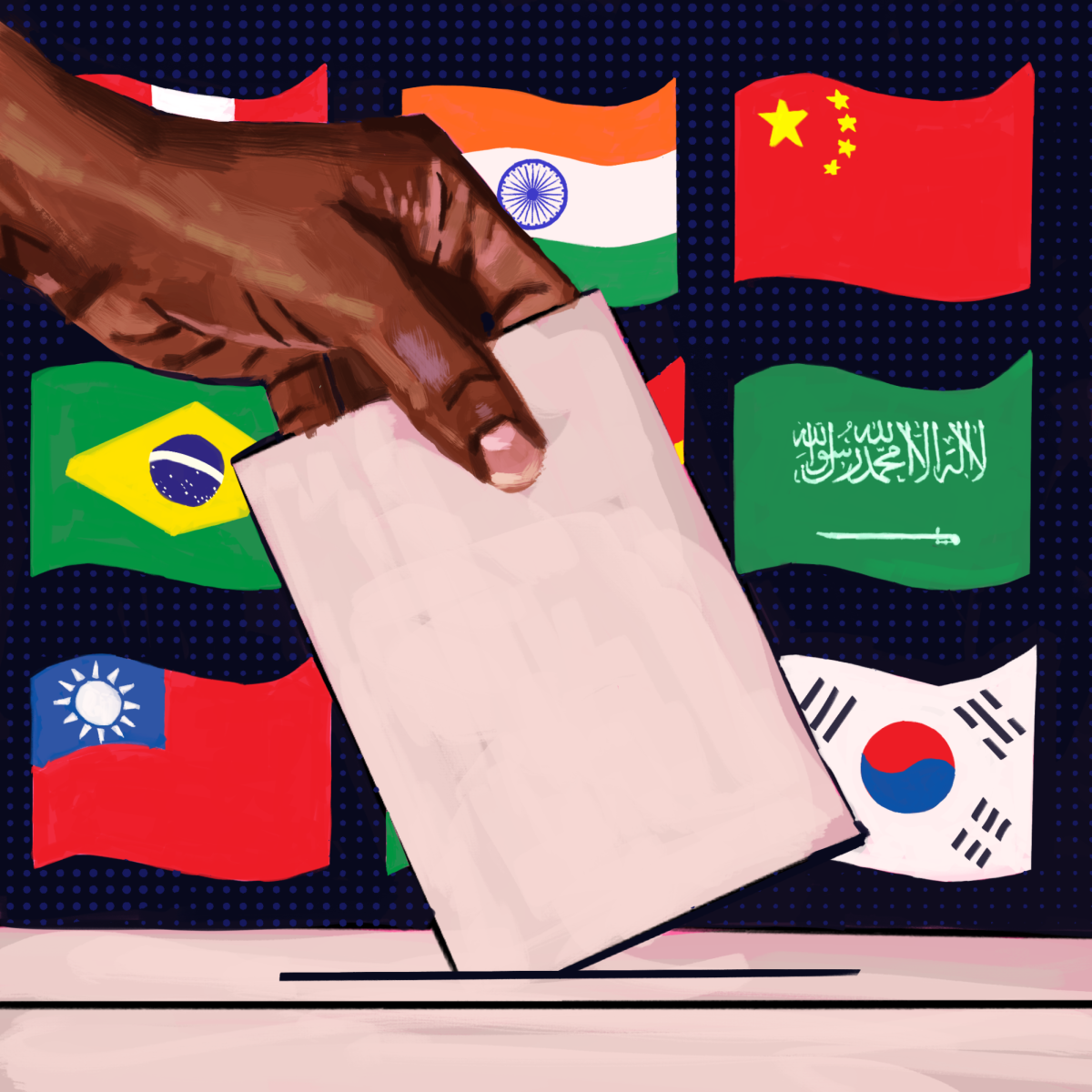International students, who make up 9.6% of the student population, are unable to vote in federal, state and local elections. However, some participate in campus political conversations.
According to University enrollment data, the percentage of international students has remained between eight and 10 percent over the past eight academic years. International students from 130 different countries attended UT last fall, according to the Texas Global website.
Laura Botero Arellano, a Venezuelan geography graduate student, defines civic engagement as active participation in issues of public interest.
“Even though (international students) are not allowed to participate in more formal spaces because of citizenship, we can foster some types of conversations about what’s happening around us,” Botero Arellano said.
Connecting with other international students, and particularly those from Latin America, helped Botero Arellano establish the relationship between cultural identity and civic identity. Botero Arellano said she is focused on understanding U.S. current events and issues while recognizing the challenges of temporary stay for
her education.
“I take my time to better situate myself where I am, and what struggles (are) happening,” Botero Arellano said.
Mehdi Haghshenas, associate professor of instruction in sociology, said civic engagement is studied as collective behavior. Haghshenas said students get involved at different levels to raise awareness on various issues of personal interest.
Hagshenas said when students share different perspectives, it can shape each others’ viewpoint to create a sense of “collective consciousness,” which he encourages in the classroom.
“For example, a student from (a country) with a history of political unrest may offer amazing insight during discussions about foreign policy or immigration reforms and how U.S. foreign policy influences these countries,” Haghshenas said.
Chemistry senior Arantxa Espinosa Rivera said taking basic government classes at UT also helped her understand the complexity of the legislative process. She said the ability to build perspectives on different political cultures strengthens her understanding of government priorities across borders.
“I don’t think (my time here) has changed … my values themselves, but I guess it’s just the way that I view the government now, and I understand how it works much better,” Espinosa Rivera said. “I do not follow parties just to follow them.”
Amongst peers who are eligible to vote, Espinosa Rivera said she encourages voter participation and also shares a new perspective to those who are less involved in U.S. politics.
Government senior Alison Eng serves as president of the BridgeTexas club at UT, which hosts discussions on politics and current events.
Eng believes deliberation over public policy helps young people to ask more meaningful questions on the effect these laws have on themselves and their broader communities. Past discussions covered topics such as federal minimum wage, midterm elections in the Texas Legislature and Second Amendment rights.
“We hope through our discussions to lead the way to a more solutions-oriented political culture, as opposed to one that’s just focused on animosity,” Eng said.













